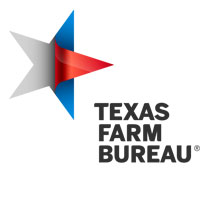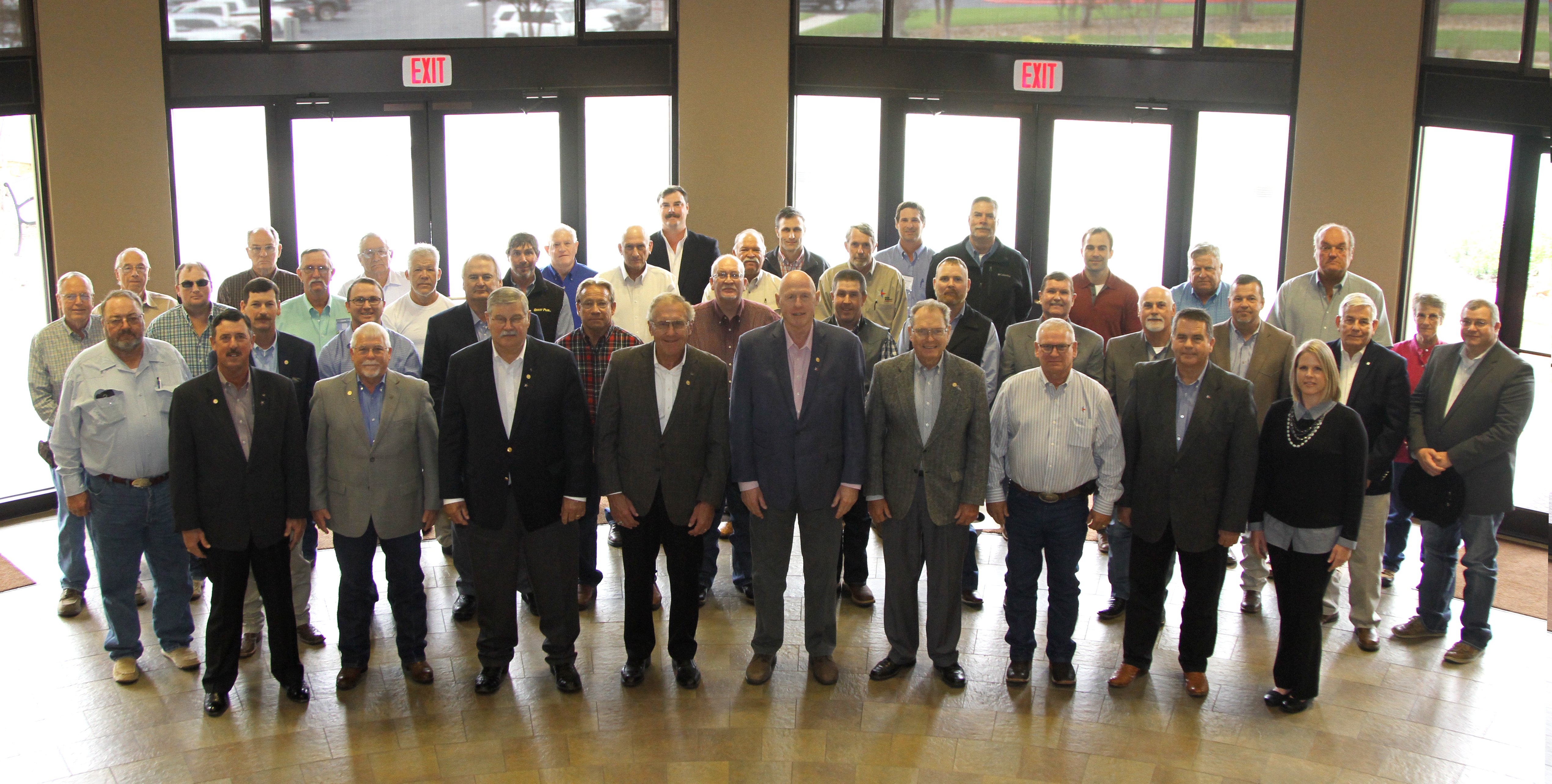TFB Resolutions Committee discusses top ag concerns
(WACO, Texas)—Eminent domain, transportation and food labeling topped the list of concerns as the Texas Farm Bureau (TFB) Resolutions Committee discussed proposed policy resolutions to the state’s largest farm organization Nov. 5-6.
The committee, comprised of 41 TFB members representing Texas agriculture, spent two days reviewing, deliberating and consolidating more than 250 resolutions to both state and national policies proposed by county Farm Bureaus from across the state.
The policy recommendations will be considered during the organization’s 85th annual meeting Dec. 1-3 in Corpus Christi.
During the two-day meeting, support was reaffirmed for eminent domain reform in Texas.
“About 95 percent of the land in Texas is privately owned, and it’s a prime target for new development,” TFB Vice President and Committee Chairman Mark Chamblee said. “Fairness and transparency in eminent domain are even more important for private property owners as Texas continues to grow at a rapid pace.”
Eminent domain reform was unsuccessful in the 2017 state legislative session, and it remains a priority for the organization.
County resolutions expressed opposition for granting eminent domain authority to companies or entities without a meaningful review process to establish common carrier status or legitimate public use.
Other issues—such as feral hogs, transportation and food labels—included both state and national resolutions.
County Farm Bureaus submitted resolutions in support of all legal methods to control feral hogs, including the use of approved chemical baits, at both the state and national level.
To better address transportation needs for agricultural commodities, the committee evaluated electronic logging device (ELD) regulations.
“Road safety and the safety of agricultural haulers and the goods they’re transporting are of the utmost importance,” Chamblee said. “ELDs, however, can do more harm than good when it comes to agriculture.”
Resolutions proposed opposition to federally-mandated ELD regulations, citing the lack of flexibility and increased limitations to get farm products to their destinations.
Chamblee noted current federal legislation, if passed, could offer temporary relief for livestock, bee and fish haulers across the nation.
Food labels continue to be on the minds of both consumers and farmers and ranchers. Committee members sifted through resolutions submitted by county Farm Bureaus that discussed accurate labeling of meat and dairy products.
Those policy resolutions proposed support to exclude cultured or plant-based protein products from being called “meat.”
“Relaxed labeling standards for meat and substitute products lead to false and misleading marketing tactics,” Chamblee said. “That negatively impacts traditional farmers and ranchers and leads to confusion for consumers.”
County Farm Bureaus also favored a national resolution that supports the U.S. Department of Agriculture, rather than the U.S. Food and Drug Administration, regulating labels and food safety for cultured tissue or manufactured plant-based imitations to meat or dairy products.
The policy recommendations will be considered during the organization’s 85th annual meeting Dec. 1-3 in Corpus Christi.
Resolutions adopted at the TFB annual meeting become policies that guide the organization. National resolutions, if adopted by voting delegates at the TFB annual meeting, are sent to the American Farm Bureau Federation (AFBF) annual convention for consideration.
Resolutions approved by AFBF delegates in January provide a roadmap for the national organization.
The 2018 Texas Farm Bureau Resolutions Committee convened Nov. 5-6 in Waco to review proposed policy changes from county Farm Bureaus (CFB) from across the state.
Row 1 (left to right): Russell Boening, TFB president; Mark Chamblee, TFB vice president and Resolutions Committee chair; Ben Wible, TFB secretary-treasurer; Dan B. Smith, TFB District 2 state director; Val Stephens, TFB District 6 state director; Neil Walter, TFB District 8 state director; Ronnie Muennink, TFB District 10 state director; Zach Yanta, TFB District 12 state director; and Sara Holloway, YF&R Advisory Committee vice chair.
Row 2 (left to right): Fred Pronger, Sherman CFB; Jared Blankenship, Deaf Smith CFB; Lance Weaver, Gray-Roberts CFB; Lloyd Arthur, Crosby CFB; Bernie Thiel, Lubbock CFB; Dennis McBroom, Montague CFB; Randall Mints, Wilbarger CFB; Ray Pace, Wichita CFB; Gerald Hobson, Parker CFB; Scott Renfro, Grayson CFB; Jerry Moody, Titus CFB; Wally Kraft, Lamar CFB; and Brandon Bell, Wood CFB.
Row 3 (left to right): Donald Vogler, Dawson CFB; Cody Cribbs, Scurry-Stonewall-Kent CFB; Jim Hudson, Taylor CFB; Mark Hedley, San Saba CFB; Roy Russell, Stephens CFB; Sam Beebe, Bosque; Cody Orman, Burnet CFB; John Griffith, Cherokee CFB; Ted Britton, Anderson CFB; Sam Hughes, Angelina CFB; Pete Pawelek, Atascosa CFB; Glenn Sultemeier, Blanco CFB; and Harriet Lamm, Live Oak CFB.
Row 4 (left to right): Larry Winkelmann, Washington CFB; Richard Fry, Austin CFB; Tom Ferguson, Brazoria-Galveston CFB; Edward Hrna, Wilson CFB; Josh Gray, Gonzales CFB; Matt Setliff, San Patricio CFB; and Cody Fry, Kleberg-Kenedy CFB.


